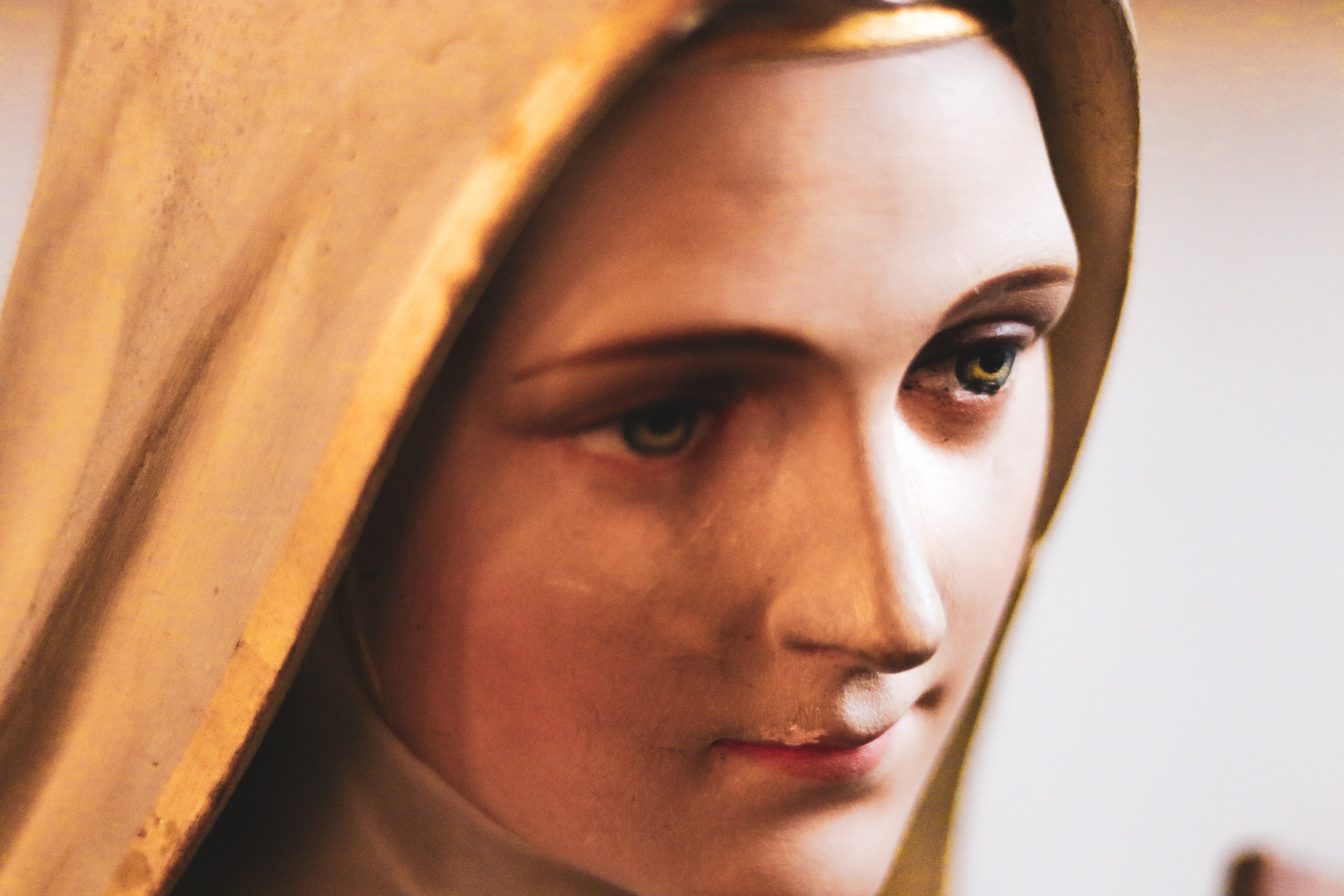Mary, full of grace.
Augustine’s approach to the Mother of God is a helpful one for 21st century Christians. Predating the popular cults and superstitions that accumulated in later centuries, unimpressed by the apocryphal writings of his time, his primary source material was Scripture. Mary is important for us, he says, not as a recipient of intercessions, but as a paradigm for the Christian life.
Although he engaged in contemporary debates about the virginity of Mary, he made it clear that what gives her such a key role in salvation history is not the biology of the incarnation, but rather the moral dimension of her ‘yes’ to the invitation to become the mother of God.
The core of Augustine’s thinking is contained in the account (Lk 1:26-38) of Gabriel’s visit to Mary. Told that she is to bear this extraordinary child, Mary sensibly asks, ‘How can this be?’ She is unconvinced by the explanation (‘the holy spirit will come upon you…); and it is not until the angel tells her of her elderly cousin’s pregnancy that she realizes it is true, and that with God, ‘nothing is impossible’. ‘Here am I, the servant of the Lord,’ she says. ‘Be it unto me according to your word.’
For Augustine it is Mary’s faith, combined with her absolute openness to the grace of God, that makes her such a pivotal figure in Christian spirituality. That grace, says Augustine, is there for all of us. We don’t need archangels erupting into our homes to deliver it. If we listen, we will hear the voice of God speaking in our own hearts. Christian and non-Christian, the incarnate God is there for us and in us. The grace of God is ours already. All we have to do is to say ‘yes’ to it. We become God-bearers when we find the faith to say, with her, ‘Be it unto me according to your word.’
But Augustine also saw Mary as a model for the Church. His arguments here are christological. Just as Mary carried the infant Christ in her womb, the Church faces the task of giving birth to Christ within the fabric of the world, and building human communities capable of saying ‘yes’ to grace.
Since Augustine’s day, the figure of the Blessed Virgin has accumulated a mythology all of its own. For women today, desperate for models of Christian womanhood that seem achievable in the real world we live in, Augustine’s Mariology is therefore particularly attractive. In 1974, aware of the many difficulties modern women face in modeling themselves on Mary, Pope Paul VI published his Apostolic Exhortation on the Cult of Mary. “The ‘popular writings’ springing from cults of the Virgin,” he said, “are not connected with the gospel image of Mary, nor with the doctrinal data that have been made explicit through a slow and conscientious process of drawing from revelation. It should be considered quite normal for succeeding generations of Christians in differing socio-cultural contexts to have expressed their sentiments about the Mother of Jesus in a way and a manner that reflected their own age.”
Augustine would probably have agreed.
Points for reflection
- In what way has Mary influenced me in the course of my spiritual journey?
- How have teachings about Mary influenced Christian thinking about the place of women in Church and society?
- In my own life, how do I recognize Gabriel’s message when it comes?
- What things are stopping me from saying ‘yes’ to the grace of God?
- How can I, as part of the Church, be a God-bearer in my own community and my own world?
From Saint Augustine
‘The Lord gives you fertility but he does not violate your integrity. Tell me, angel Gabriel, how does this happen to Mary? The angel answers, ‘I told you this in my greeting, hail full of grace. It is through grace that it happens.’
Sermons 291, 6
‘Since Christ is truth, peace and justice, conceive him by faith, bring him forth by works, so that what the womb of Mary did in the flesh of Christ, your heart may do in the law of Christ.’
Sermon 192
‘Mary is holy, Mary is blessed, but the Church is something better than the Virgin Mary. Why? Because Mary is part of the Church, a holy member, a quite exceptional member, the supremely wonderful member, but still a member of the whole body. So the Church imitates the Lord’s mother, - not in the bodily sense, which it could not do – but in the mind it is both virgin and mother.’
Sermons 72a.8 and 191.3
From The Bible
‘Mary said to the angel, ‘Here am I, the servant of the Lord. Let it be to me according to your word.’
Luke 1:38
‘My soul magnifies the Lord, and my spirit rejoices in God my Saviour; for he has looked with favour on the lowliness of his servant. Surely from now on all generations will call me blessed: for the mighty one has done great things for me, and holy is his name.’
Luke 1:46-49
‘When the wine gave out, the mother of Jesus said to him, ‘They have no wine’.’
John 2:3
‘Meanwhile, standing near the cross of Jesus, were his mother and his mother’s sister, Mary the wife of Clopas, and Mary Magdalene. When Jesus saw his mother and the disciple whom he loved standing beside her, he said to his mother, ‘Woman here is your son’. Then he said to the disciple, ‘Here is your mother.’’
John 19:25-27
‘When Gentiles do instinctively what the law requires … they show that what the law requires is written on their hearts, to which their own conscience also bears witness; and their conflicting thoughts will accuse or perhaps excuse them on the day when, according to my gospel, God, through Jesus Christ, will judge the secret thoughts of all.’
Romans 2:14-16
Compiled by Jean Henderson and Gillian Paterson

